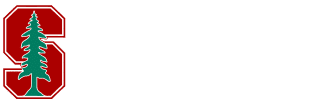This course is designed to teach the same fundamental skills of research and analysis used by pre-med students, advanced STEM college students, researchers, and other science professionals.

“Academic criteria are important to Yale’s selective admissions process, but we look at far more than test scores and grades…
Every applicant brings something unique to the admissions committee table. Perhaps one application stands out because of sparkling recommendations, while another presents outstanding extracurricular talent; maybe your personality shines through a powerful written voice.”

“Even perfect test scores don’t guarantee admission. Far from it: 69 percent of Stanford’s applicants over the past five years with SATs of 2400 — the highest score possible — didn’t get in”
“Of course academic credentials are important, but we’re also looking for evidence that this young person has a passion, that he or she will bring something to our community that is unique.”
All universities, especially the top ones, are looking very closely at the extracurricular section of the application to differentiate candidates. In many cases, as publicly stated by Yale and Stanford, students can beat students with higher GPAs/SAT scores by demonstrating outstanding extracurricular abilities. Admissions officers want applicants who can demonstrate their real–world talents and ability to grow beyond the school classroom. This is what our Pre–med & Healthcare class does. There’s no other better way to demonstrate a student’s outstanding extracurricular talent than by understanding the fundamentals of healthcare at an early age and being able to do the same type of research and analysis that science majors and medical students do. By the end of our program, our students develop the necessary skills and have applied them to relevant case studies that help them stand out while pursuing a path in pre-med, research, biotech, or any science-related majors in the future.
Almost every student writes about the same things for their college admissions essays: volunteering, leadership, family experiences. For a student to stand out, an admissions officer must be able to envision what they can achieve after graduating from the university, and that means students must write about their proven ability to succeed into the future. This is why we focus on having students learn and perform the same type of skills and work that pre–med students, college–level science students, researchers, and other science professionals do, in addition to allowing them to practice their skills on relevant case studies. This is the foundation to gaining more achievements, doing better in competitions, and landing an internship at a young age, which means more meaningful experiences to draw from on their essays.
There is nothing more impressive on a college app than landing a real internship at a real institution, doing real work – not filing papers and getting coffee. The problem is that it’s very difficult to land internships doing actual work, especially in high school when students haven’t had the right training. We provide that exact training. This is why it’s important that we not only teach the most important tools essential to conducting the same type of research and analysis that pre–med students, college–level science students, researchers, and other science professionals do, but also allow students to practice their skills on relevant case studies. This way, institutions are more inclined to give them an internship since they’ve already been trained. This in turn will show that they can be outstanding in the real world and not just in the classroom, which is very important to universities.
Recommendation letters are one of the most important differentiating factors to being accepted into a university. A good one can help a student stand out and a mediocre one is just as unhelpful as a bad one. This course is a safe and fast–paced learning environment where students learn very intense material and more importantly, making their mistakes with us. This way when they are in moments where it counts (internships, other extracurriculars, competitions, in front of coaches) they are more focused on learning than impressing.
Doing well in competitions, or winning highly coveted scholarships or grants, are important in the eyes of a college admissions officer because it gives a student’s application credibility. Credibility is one of the best ways to stand out and give them an edge. Our programs are designed to sharpen their thinking skills and also provide them with valuable information that they can use in turn to win more competitions, scholarships, and grants – and ultimately help bring more credibility to their college application.
The whole point of AP and honors classes is that a student can show universities they are capable of material above and beyond their current age group. This is no different. This course is based on learning and performing the same type of skills and work that pre–med students, college–level science students, researchers, and other science professionals do in addition to allowing students to practice their skills on relevant case studies. This is beyond college–level material. This truly involves pushing their thinking skills, learning skills, and intelligence to a higher level. When students pass, they will be able to demonstrate to universities that they have the ability to think and work at a much higher level than other applicants. This in turn helps them stand out where it matters most – in the eyes of the admissions officer.
All universities, especially the top ones, look very closely at the extracurricular section of the application to differentiate candidates. In many cases, as publicly stated by Yale and Stanford, students can beat students with higher GPAs/SAT scores by demonstrating outstanding extracurricular abilities. Admissions officers want applicants who can demonstrate their real–world talents and ability to grow beyond the classroom. This is what our Pre–Med & Healthcare class does. There’s no better way to demonstrate a student’s outstanding extracurricular talent than by understanding the fundamentals of healthcare at an early age and being able to do the same type of research and analysis that science majors and medical students do. By the end of our program, our students develop the necessary skills and have applied them to relevant case studies that help them stand out while pursuing a path in pre-med, research, biotech, or any science-related majors in the future.
Almost every student writes about the same things for their college admissions essays: volunteering, leadership, family experiences. For a student to stand out, an admissions officer must be able to envision what they can achieve after graduating from the university, and that means students must write about their proven ability to succeed into the future. This is why we focus on having students learn and perform the same type of skills and work that pre–med students, college–level science students, researchers, and other science professionals do, in addition to allowing them to practice their skills on relevant case studies. This is the foundation to gaining more achievements, doing better in competitions, and landing an internship at a young age, which means more meaningful experiences to draw from on their essays.
There is nothing more impressive on a college app than landing a real internship at a real institution, doing real work – not filing papers and getting coffee. The problem is that it’s very difficult to land internships doing actual work, especially in high school when students haven’t had the right training. We provide that exact training. This is why it’s important that we not only teach the most important tools essential to conducting the same type of research and analysis that pre–med students, college–level science students, researchers, and other science professionals do, but also allow students to practice their skills on relevant case studies. This way, institutions are more inclined to give them an internship since they’ve already been trained. This in turn will show that they can be outstanding in the real world and not just in the classroom, which is very important to universities.
Recommendation letters are one of the most important differentiating factors for university acceptance. A good one can help a student stand out, and a mediocre one is just as unhelpful as a bad one. This course is a safe and fast–paced learning environment where students learn very intense material and, more importantly, make their mistakes with us. This way, when they are in moments where it counts (internships, other extracurriculars, competitions, in front of coaches), they are more focused on learning than on impressing.
Doing well in competitions, or winning highly coveted scholarships or grants, are important in the eyes of a college admissions officer because it gives a student’s application credibility. Credibility is one of the best ways to stand out and give them an edge. Our programs are designed to sharpen their thinking skills and also provide them with valuable information that they can use in turn to win more competitions, scholarships, and grants – and ultimately help bring more credibility to their college application.
The whole point of AP and honors classes is that a student can show universities they are capable of material above and beyond their current age group. This is no different. This course is based on learning and performing the same type of skills and work that pre–med students, college–level science students, researchers, and other science professionals do in addition to allowing students to practice their skills on relevant case studies. This is beyond college–level material. This truly involves pushing their thinking skills, learning skills, and intelligence to a higher level. When students pass, they will be able to demonstrate to universities that they have the ability to think and work at a much higher level than other applicants. This in turn helps them stand out where it matters most – in the eyes of the admissions officer.
Critical thinking, research, analysis, and turning findings into meaningful conclusions are one of the core fundamental skill sets that students must master if they want to excel in pre–med, research, biotech, or any science–related majors in the future. These are skills that need to be practiced, honed, and challenged to grow. Our classes exercise that part of the brain and skill set heavily by doing the same type of research and analysis that pre–med students, college–level science students, researchers, and other science professionals do.
Being able to recall the definition of certain items is not helpful in a student’s ability to excel. No one has ever cured a disease or diagnosed an illness by purely knowing the definition. This course focuses on teaching the students the fundamental knowledge they need to know and how to utilize tools and resources that medical/research professionals use to derive conclusions where others cannot.
Knowing every compound on a periodic table and every part of the human body is always great knowledge to have. But the problem is that if a student cannot have others understand the conclusions and recommendations they’re making, it is as unhelpful as never coming up with the conclusions and recommendations at all. The world’s leaders – whether they’re a programmer, scientist, architect, doctor, or CEO – all must effectively communicate their thoughts, recommendations, and conclusions to others. This is what separates scientific leaders from the average.
Critical thinking, research, analysis, and turning findings into meaningful conclusions is one of the core fundamental skill sets that students must master if they want to Excel in pre–med, research, biotech, or any science–related majors in the future. These are skills that need to be practiced, honed, and challenged in order to grow. Our classes exercise that part of the brain and skill set heavily by doing the same type of research and analysis that pre–med students, college–level science students, researchers, and other science professionals do in addition to allowing the students to practice those skills on relevant case studies.
Being able to recall the definition of certain items is not helpful in a student’s ability to Excel in the science and medical field, their internship, or anything else for that matter. No one has ever cured a disease or diagnosed an illness by purely knowing the definition. This course focuses on not only teaching the students the fundamental knowledge they need to know, but more importantly how to utilize tools and resources that medical/research professionals use in order to derive conclusions where others cannot.
Knowing every compound on a periodic table and every part of the human body is always great knowledge to have. But the problem is that if a student cannot have others understand the conclusions and recommendations they’re making, it is as unhelpful as never coming up with the conclusions and recommendations at all. The world’s leaders, no matter if they’re a programmer, scientist, architect, doctor, or CEO, all involve being able to effectively communicate thoughts, recommendations, and conclusions to others and is what separates scientific leaders from the average.
We focus on providing our students with the necessary tools, skills, and resources to be able to do the same type of research and analysis at an early age that college-level students, postgraduates, and medical/research professionals do. This allows our students to practice their skills on relevant case studies where they can see and understand how to conduct research, process data, and, more importantly, articulate those findings at a much more sophisticated level.
Since students focus on doing the same type of research and analysis that pre-med students, college-level science students, researchers, and other science professionals do, they leave the class with truly valuable and marketable skills they can rely on for the rest of their lives. Our course is not focused on memorizing chemical compounds or definitions (students receive enough of that in the classroom). They leave our course with tangible and useful skills and knowledge.

We have honed our teaching style, curriculum, and teacher quality for 10+ years, so we have no problem insuring your money with a 100% money-back guarantee.
We’re so confident that this is the best class you and your student will have ever attended
that we’ll give you $100 cash on top of your money-back guarantee.
*For group classes, students must attend at least 80% of the classes in a course. For 1-on-1 classes, the request must be made prior to the start of the fifth class.
Fundamentals of the Healthcare System
Healthcare Technologies
Law & Ethics
Biostatistics Research & Analysis / Epidemiology
Biostatistics Research & Analysis / Epidemiology (Cont'd)
Research Posters - Effectively Presenting Research, Data, Analysis & Conclusions
Research Posters - Effectively Presenting Research, Data,
Analysis & Conclusions (Cont'd)
Research Grants & Proposals
Intro To Constructing Medical Case Studies
Research Project Conclusion


All of our classes are done completely online, fully remote. We have class options on both weekdays and weekends. Classes can be done in small group (2–5 students) or 1–on–1. All depending on availability.
There are 10 classes total in the entire course, and each class is typically 3 hours.
Classes during the school year (Fall/Winter/
Spring) are typically 1x/week for 10 weeks.
Classes during the summer are typically 2x/week for 5 weeks.
Our classes are offered year-round and we often have multiple classes running in the same week, but at different times. To get the most up–to–date information on current and upcoming classes, fill out the enrollment form below and our class coordinator will reach out to you as soon as possible.
Class options can be customized around the
availabilities of the students. All you need to do is tell
us when your student is busy, and we’ll work to find a class timing that will work for their schedule. We can customize.
All of our classes are done online and are backed by our 100% Money–Back Guarantee. Classes are possible all days of the week, during all times of the day (morning
to evening), and can occur as frequently (1x,2x,3x/
week, etc.) as requested, and happen throughout the
entire year – depending on availability.
All you need to do is fill out the form below, and our team will do our best to find a time that works for
your schedule.


Enrolling your child is simple!
After that, consider your child enrolled!